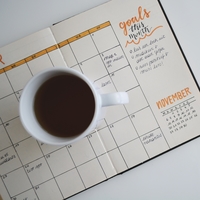How to Lower Stress Levels (and Blood Pressure!)
Volume I, Issue III
April is National Stress Awareness Month – a.k.a. a good time to take a look at how stress impacts our health and wellness. In our last blog post, we explored stress and blood pressure in our last blog post. If you missed it, check out “More Than a Measurement: How Does Stress Impact your Blood Pressure?”.
As it turns out, there is a short-term connection between stress and blood pressure. In fact, our bodies react to stress by releasing hormones (specifically, adrenaline and cortisol) into the blood. These hormones prepare the body for the “fight or flight” response by making the heart beat faster and constricting blood vessels to get more blood to the core of the body. This raises blood pressure temporarily, but when the stress reaction goes away, blood pressure (should) return to normal.
That’s short-term, but what about the long-term connection between stress and increased blood pressure? The answer is, unfortunately, murkier.
Luckily, according to the Mayo Clinic, stress-reducing activities can lower your blood pressure over the long haul: “While reducing stress might not directly lower blood pressure over the long term, using strategies to manage your stress can improve your health in other ways. Mastering stress management techniques can lead to other behavior changes — including those that reduce your blood pressure.”
The Mayo Clinic provides tips to combat chronic levels of stress and lower blood pressure in the long-term:
Simplify your schedule.
If you consistently feel rushed, take a few minutes to review your calendar and to-do lists. Look for activities that take up your time but aren’t very important to you. Schedule less time for these activities or eliminate them completely.
Breathe to relax.
Making a conscious effort to deepen and slow down your breathing can help you relax.
Exercise.
Physical activity is a natural stress buster. Just be sure to get your doctor’s OK before starting a new exercise program, especially if you’ve already been diagnosed with high blood pressure.
Try yoga and meditation.
Yoga and meditation not only can strengthen your body and help you relax, but also may lower your systolic blood pressure by 5 millimeters of mercury (mm Hg) or more!
Get plenty of sleep.
Being sleep deprived can make your problems seem worse than they really are.
Shift your perspective.
When dealing with problems, resist the tendency to complain. Acknowledge your feelings about the situation, and then focus on finding solutions.







